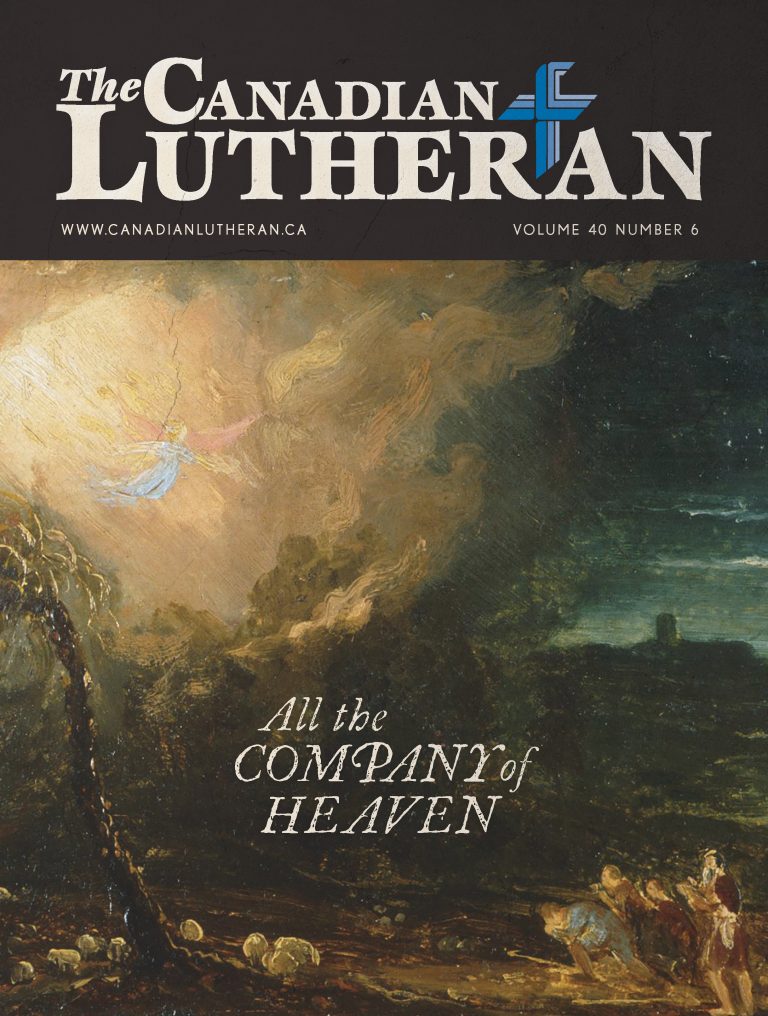In Review: Kingdom of the Planet of the Apes
 by Ted Giese
by Ted Giese
As advanced apes struggle to live together, an unexpected human, Mae, seeks access to an item she believes can give humankind a critical advantage against apes in a bid to regain control over the earth.
The fourth film in the modern Planet of the Apes franchise is set many generations after the events of 2017’s War for the Planet of the Apes. The previous films told the story of Caesar, a young chimpanzee who gained higher cognition and language skills as a result of experimentation. In those films, Caesar grew to manhood and became for ape-kind a sort of Moses-figure—a law giver and leader who brought his growing band of apes to a kind of Promised Land where they could flourish outside the reach of diseased and regressing humanity.
Kingdom of the Planet of the Apes begins a new trilogy chronicling the legacy of Caesar. The new film begins with Caesar’s funeral before skipping forward a few hundred years to a time when Caesar is an historic and iconic figure—a time in which both humans and apes live in a world shaped by his prior actions.
Central to the new story is Noa, a young ape prince on the cusp of adulthood. He lives with his mother Dar and father Koro, the leader of the Eagle Clan and Master of Birds. This ape colony lives symbiotically with eagles which they use to hunt food. The audience is introduced to Noa as he and his friends are scaling a skyscraper reclaimed by nature to each take a wild eagle egg from a nest—part of a coming-of-age ritual where they must incubate the eggs and nurture the eaglet to adulthood, creating a bond between ape and eagle.
Their peaceful existence is interrupted as hunters from a coastal ape colony carry out a raid, killing some and dragging the rest of Noah’s clan off for slave labour. Noa, left for dead, sets out to find and potentially rescue his surviving Eagle Clan brothers and sisters. While on his way he meets Raka a sage hermit orangutan, who explains: “Long before your elders, it was Caesar who taught us of what it means to be Ape. He was our leader, our lawgiver: ‘Apes together, strong,’ ‘Ape shall not kill ape.’ We, the Order of Caesar, follow his words to this day. I follow. I am now… the last.” As this new chapter for ape-kind begins, Raka serves as a connecting link between the legacy of Caesar and the future, effectively passing the mantle of leadership to Noa.
They are quickly joined by the human Mae, who surprisingly can speak—something they thought was no longer possible. At this point apes refer to humans as “echoes”—basically animals. Once they had been something more but now humans are merely an “echo” of what they had been due to the rapid spread of Simian Flu (a genetically-engineered virus that spread naturally from person to person, and which was originally intended to cure Alzheimer’s disease). Mae turns out to be a human unaffected by the unintended consequences of the lingering Simian Flu, which caused both the regression of humanity and the rise of the apes. Many generations later, almost all apes speak while there are few examples of speaking humans.
Viewers familiar with these recent films will recall a fair amount of Christian symbolism and biblical allusions scattered throughout.
Proximus Caesar is the leader of the coastal ape colony sending out hunters to enslave his fellow apes. As the name suggests, he presents himself as a new or “next” Caesar. This pseudo-religious leader is nothing like the original Caesar, and is clearly twisting the memory of Caesar for his own purposes. He serves as a cautionary character, warning of the dangers of leaders who misappropriate religious fervor and historical personages for their personal gain. Corrupting the original Caesar’s dictum ‘Apes together, strong,’ Proximus uses this as justification for abducting and enslaving his fellow apes. He wants to strong-arm his way into an abandoned military facility, believing the contents will further ape ‘evolution’ and give him a critical advantage over any remaining humans on earth.
Many of Proximus’ ideas have been fed to him by his human history teacher, a man who’s given up on the idea of humanity and chosen to live in the relative comfort of Proximus’ court. When Noa and Mae are captured by one of Proximus’ hunters, they must choose to either live under his brutal regime or resist. Noa and Mae have different reasons for their actions yet share a common goal of resistance.
This provides the backdrop for the film’s basic questions: what kind of kingdom is best? And can apes and humans trust each other and find a way to peacefully live and work together?
Viewers familiar with these recent films will recall a fair amount of Christian symbolism and biblical allusions scattered throughout. Consider, for example, Caesar’s symbol, which mirrors the Christian use of the cross as a religious symbol. The Christian cross is of course a symbol of the crucifixion of Jesus, used by Christians as a way to remember His suffering and death for the salvation of the world. It reminds us that Jesus shed His blood and died to save humanity from sin, death, the devil, and the world—and even to save each person from themselves.
In The Planet of the Apes films, Caesar also created a symbol, which looks something like a star centered in a circle. Caesar’s symbol is derived from the design of his window in the house where he grew up with humans in 2011’s Rise of the Planet of the Apes. Later while imprisoned, Caesar drew the shape of that window design upon the concrete of his cell as a symbol of what he’d had lost and what he hoped one day to regain. When Caesar eventually managed to pull together a small village of apes, this image is shown again as a symbol of community and life together.
In the new film, we see that symbol worn as a pendant by the orangutan Raka—much as a Christian might wear a cross necklace. It symbolizes the hope of a brighter future in which ape-kind live together in harmony.
If Caesar in the first films was a kind of Moses-figure, then Noa here is to a lesser extent a kind of Noah.
Proximus Caesar also uses this symbol, but in his hands it becomes instead a symbol of forced togetherness. The pendant worn by Raka is given first to Noa and eventually to Mae—a fulfillment of sorts of the symbols’ first meaning for the original Caesar: a symbol of life and harmony between humanity and the apes. Christian viewers will recognize instances through history when symbolic images, including the Christian cross, have been used for nefarious purposes antithetical to their true meaning. In Kingdom of the Planet of the Apes, the symbol of Caesar’s legacy suffers the same conflicted history of both stigma and genuine veneration that has been suffered by the cross of Christ.
A more obvious— if somewhat loose—biblical allusion is the name of the central character. If Caesar in the first films was a kind of Moses-figure, then Noa here is to a lesser extent a kind of Noah. The biblical Noah built an ark at God’s direction, and he and his family are rescued in that ark as a flood wipes away a humanity which had become wicked (Genesis 6:13-8:19). Proximus Caesar is certainly a kind of “mighty man” or “man of renown” who does what he wants without reprisal, much like the tyrants and thugs who are washed away in judgment by the flood in Genesis 6 (Genesis 6:1-13). A flood likewise washes away the coastal ape colony, but Noa—like his biblical namesake—is able to rescue much of his family, the Eagle Clan. They return home to rebuild their community together in peace.
Where the film sadly falls flat is in its slow pacing and two hour and twenty-five minute runtime. Introducing Proximus Caesar earlier in the film would also have helped to raise the stakes and improve tension and drama in the first act. For those who love the franchise, Kingdom of the Planet of the Apes provides a leisurely tour of its world and an imaginative new entry in the continuing story. Nevertheless, while the film tackles new questions of how a person’s memory is passed down through time and how it can be corrupted, much of the film otherwise feels remarkably similar to past entries, repeating old themes like personal vengeance and temptations to abuse power.
 ———————
———————
Rev. Ted Giese is lead pastor of Mount Olive Lutheran Church in Regina, and movie reviewer for Issues, Etc.






